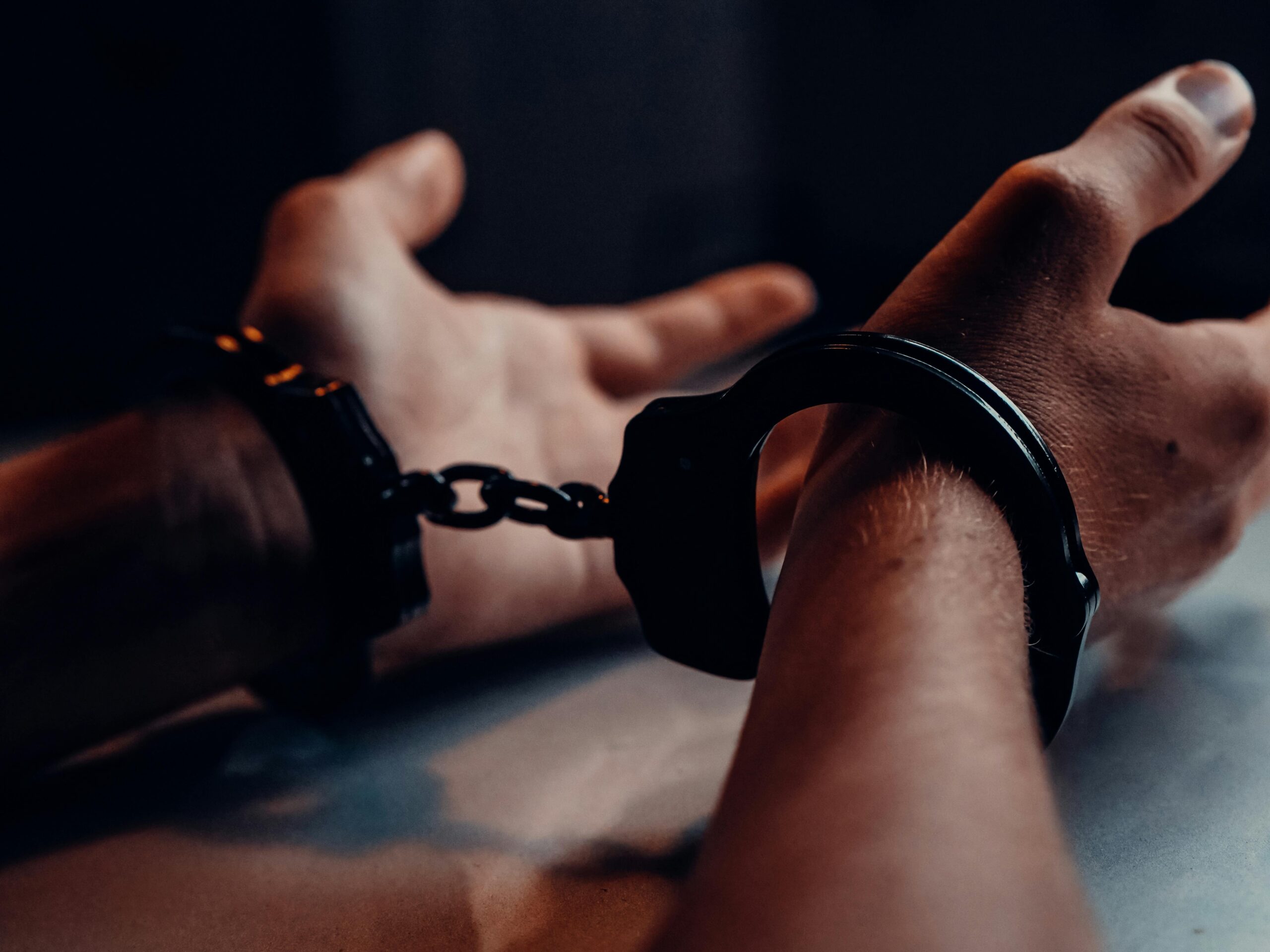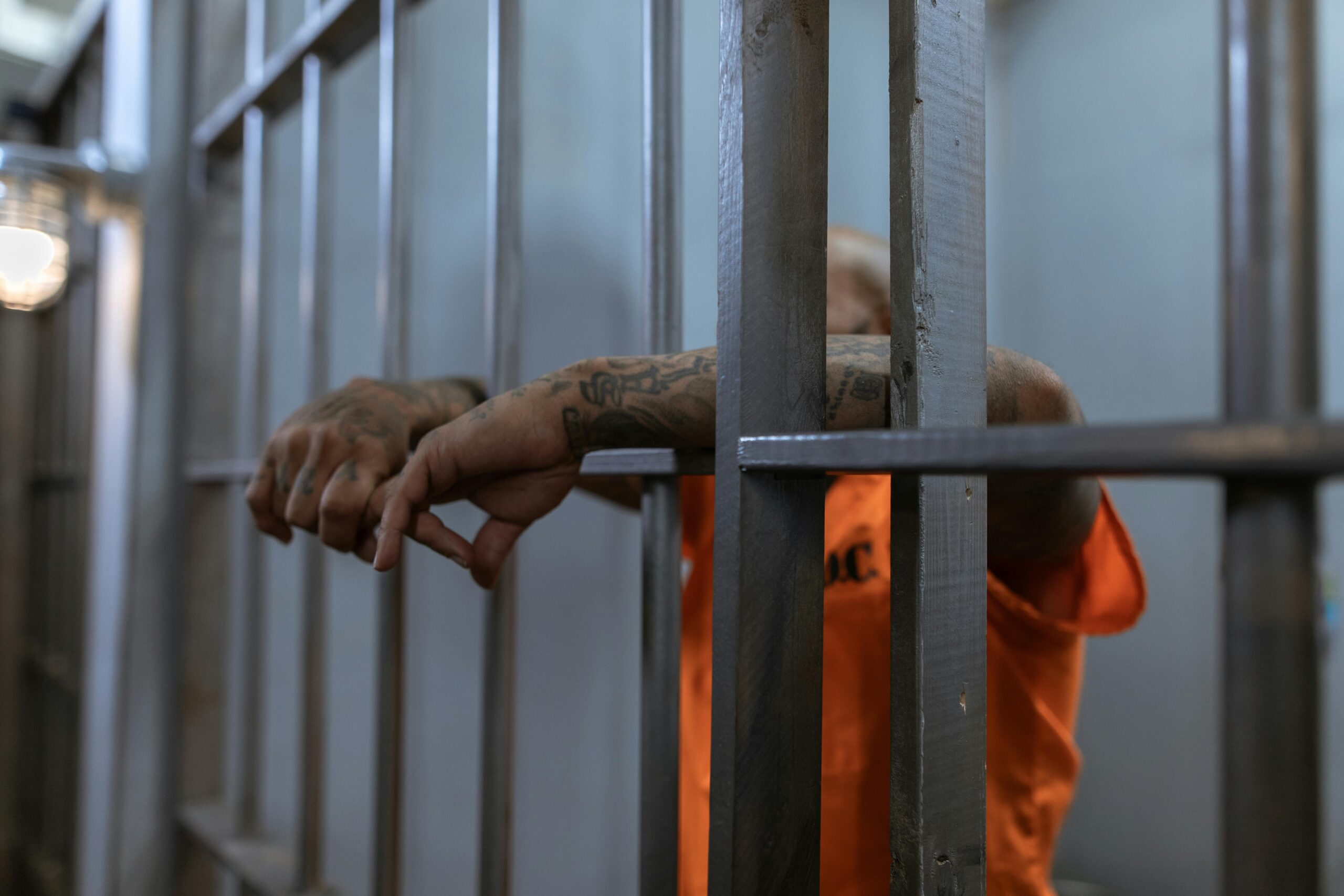
Misdemeanor Lawyer: Your Guide to Criminal Defense Representation
Facing misdemeanor charges can be overwhelming and stressful, even though these offenses are considered less serious than felonies. A skilled misdemeanor lawyer provides essential legal representation to protect your rights, minimize consequences, and navigate the complex criminal justice system. Understanding when to hire a misdemeanor lawyer and what they can do for your case is crucial for achieving the best possible outcome.
What Is a Misdemeanor Lawyer?
A misdemeanor lawyer is a criminal defense attorney who specializes in representing clients charged with misdemeanor offenses. These legal professionals possess comprehensive knowledge of criminal law, court procedures, and defense strategies specifically tailored to less serious criminal charges. While misdemeanors carry lighter penalties than felonies, they can still result in jail time, fines, probation, and long-lasting consequences on your permanent record.
Misdemeanor attorneys handle a wide range of cases, from traffic violations and petty theft to domestic violence and drug possession charges. Their expertise extends beyond courtroom representation to include plea negotiation, case investigation, evidence analysis, and client advocacy throughout the entire legal process.
Common Types of Misdemeanor Cases
Traffic and Vehicle-Related Offenses
Driving under the influence (DUI) and driving while intoxicated (DWI) represent some of the most common misdemeanor charges that attorneys handle. These cases often involve complex evidence including blood alcohol tests, field sobriety examinations, and traffic stop procedures that require careful legal scrutiny.
Reckless driving, driving with a suspended license, and hit-and-run accidents also fall into this category. Each of these charges carries potential consequences including license suspension, increased insurance rates, and possible jail time, making experienced legal representation essential.
Theft and Property Crimes
Petty theft, shoplifting, and vandalism constitute significant portions of misdemeanor caseloads. While these charges may seem minor, they can result in criminal records that affect employment opportunities, housing applications, and professional licensing.
Trespassing, criminal mischief, and possession of stolen property are additional property-related misdemeanors that require skilled defense strategies. Misdemeanor lawyers understand how to challenge evidence, negotiate with prosecutors, and explore alternative sentencing options for these cases.
Assault and Personal Crimes
Simple assault, battery, and domestic violence charges represent serious misdemeanor offenses that can have profound personal and professional consequences. These cases often involve complex relationships between accusers and defendants, requiring sensitive handling and strategic defense approaches.
Disorderly conduct, public intoxication, and harassment charges also fall within this category. Misdemeanor attorneys work to protect clients’ reputations while addressing the underlying circumstances that led to these charges.
Drug and Alcohol Offenses
Possession of small amounts of marijuana, prescription drug violations, and public intoxication represent common drug-related misdemeanors. Even as drug laws evolve across different jurisdictions, these charges continue to require experienced legal representation.
Misdemeanor lawyers stay current with changing drug laws and understand how to leverage treatment programs, diversion options, and plea agreements to minimize the impact of drug-related charges on their clients’ lives.
Services Provided by Misdemeanor Lawyers
Case Evaluation and Legal Strategy Development
The initial consultation with a misdemeanor lawyer involves comprehensive case evaluation, including review of police reports, evidence analysis, and identification of potential defense strategies. Attorneys assess the strength of the prosecution’s case and identify weaknesses that can be exploited in defense.
Strategic planning includes determining whether to proceed to trial or pursue plea negotiations, evaluating the likelihood of success with various defense approaches, and developing timelines for case resolution. This thorough preparation forms the foundation for effective representation.
Plea Negotiation and Bargaining
Most misdemeanor cases are resolved through plea agreements rather than trials. Experienced misdemeanor lawyers leverage their relationships with prosecutors and knowledge of local court practices to negotiate favorable plea deals that minimize penalties and consequences.
Effective plea negotiation might result in reduced charges, alternative sentencing options, deferred prosecution agreements, or dismissal of charges in exchange for completion of specific requirements. These negotiations require skill, experience, and understanding of both legal precedent and practical considerations.
Court Representation and Trial Advocacy
When cases proceed to trial, misdemeanor lawyers provide zealous advocacy in courtroom settings. This includes jury selection, opening and closing arguments, witness examination, evidence presentation, and legal motion practice.
Trial preparation involves investigating facts, interviewing witnesses, reviewing evidence, and developing compelling narratives that support the defense theory. Even in misdemeanor cases, thorough trial preparation can mean the difference between conviction and acquittal.
Post-Conviction Relief and Appeals
Following conviction, misdemeanor lawyers continue to advocate for their clients through appeals processes, sentence modification requests, and expungement proceedings. These post-conviction services help minimize the long-term impact of criminal charges on clients’ lives.
Expungement and record sealing services are particularly valuable for misdemeanor convictions, as they can restore employment opportunities, housing options, and professional licensing eligibility that might otherwise be affected by criminal records.
Why You Need a Misdemeanor Lawyer
Protection of Constitutional Rights
Criminal charges, even misdemeanors, trigger important constitutional protections including the right to remain silent, the right to legal counsel, and protection against unreasonable searches and seizures. Misdemeanor lawyers ensure these rights are respected throughout the legal process.
Without proper legal representation, defendants may inadvertently waive important rights or make statements that damage their cases. Attorneys serve as advocates who protect clients from prosecutorial overreach and ensure fair treatment within the justice system.
Knowledge of Local Courts and Procedures
Each jurisdiction has unique court procedures, local rules, and informal practices that affect case outcomes. Misdemeanor lawyers who regularly practice in specific courts understand these nuances and can navigate procedural requirements effectively.
Local knowledge extends to understanding individual judges’ preferences, prosecutors’ typical plea offers, and alternative sentencing programs available in specific jurisdictions. This familiarity provides significant advantages in case strategy and outcome prediction.
Minimizing Long-Term Consequences
While misdemeanor penalties may seem manageable, the long-term consequences of conviction can be substantial. Criminal records affect employment opportunities, professional licensing, housing applications, college admissions, and immigration status.
Skilled misdemeanor lawyers work to minimize these collateral consequences through strategic defense approaches, alternative sentencing negotiations, and post-conviction relief options. Their goal extends beyond immediate case resolution to protecting clients’ future opportunities and quality of life.
Evidence Analysis and Investigation
Effective misdemeanor defense requires thorough investigation of facts, analysis of evidence, and identification of procedural violations that might lead to case dismissal or evidence suppression. Attorneys have resources and expertise to conduct these investigations properly.
This might include challenging the legality of traffic stops, questioning the reliability of witness identification, analyzing laboratory test results, or investigating police misconduct. These technical aspects of defense require legal expertise that self-represented defendants typically lack.
Choosing the Right Misdemeanor Lawyer
Experience and Specialization
When selecting misdemeanor representation, prioritize attorneys with substantial experience in criminal defense and specific expertise in misdemeanor cases. Look for lawyers who regularly handle cases similar to your charges and have track records of successful outcomes.
Consider whether the attorney focuses primarily on criminal defense or practices in multiple areas of law. Specialists in criminal law typically have deeper knowledge of defense strategies, court procedures, and relationships with prosecutors that benefit their clients.
Local Court Experience
Choose attorneys who regularly practice in the courts where your case will be heard. Local experience provides advantages in understanding court procedures, judge preferences, and prosecutor tendencies that can significantly impact case outcomes.
Ask potential attorneys about their familiarity with specific judges, their relationships with local prosecutors, and their knowledge of alternative sentencing programs available in your jurisdiction.
Communication and Availability
Effective attorney-client communication is essential throughout the legal process. Select lawyers who respond promptly to communications, explain legal concepts clearly, and keep you informed about case developments.
During initial consultations, evaluate whether attorneys listen to your concerns, answer questions thoroughly, and demonstrate genuine interest in your case. These characteristics often predict the quality of representation you’ll receive throughout the legal process.
Fee Structure and Payment Options
Understand attorneys’ fee structures, payment requirements, and what services are included in their representations. Many misdemeanor lawyers offer flat fee arrangements that provide cost predictability, while others charge hourly rates.
Discuss payment plans, financing options, and what additional costs might arise during representation. Clear financial arrangements prevent misunderstandings and ensure you can afford quality legal representation throughout your case.
The Legal Process in Misdemeanor Cases
Initial Arrest and Booking
The misdemeanor legal process typically begins with arrest and booking procedures, during which police collect personal information, take fingerprints and photographs, and formally process charges. Understanding your rights during this phase is crucial for protecting your case.
Following arrest, defendants are typically released on their own recognizance or after posting bail. Misdemeanor lawyers can assist with bail hearings, bond reduction requests, and ensuring prompt release from custody.
Arraignment and Initial Court Appearances
Arraignment represents the formal charging procedure where defendants hear charges read aloud and enter initial pleas. Most misdemeanor lawyers advise entering not guilty pleas at arraignment to preserve all defense options and allow time for case investigation.
During initial court appearances, attorneys request discovery materials, file preliminary motions, and begin plea negotiations with prosecutors. These early proceedings set the foundation for case resolution strategies.
Discovery and Investigation Phase
The discovery phase involves exchanging evidence between prosecution and defense, allowing attorneys to evaluate the strength of the government’s case and identify potential defense strategies. This includes police reports, witness statements, laboratory results, and physical evidence.
Misdemeanor lawyers use this phase to investigate facts independently, interview witnesses, consult with experts when necessary, and identify legal issues that might lead to case dismissal or evidence suppression.
Plea Negotiations and Resolution
Most misdemeanor cases are resolved through plea agreements that avoid the time, expense, and uncertainty of trial proceedings. Skilled attorneys leverage case weaknesses and mitigating factors to negotiate favorable plea terms.
Successful plea negotiations might result in reduced charges, alternative sentencing options like community service or treatment programs, or deferred prosecution agreements that ultimately lead to case dismissal.
Trial Proceedings When Necessary
When plea negotiations fail to produce acceptable outcomes, misdemeanor cases proceed to trial where defendants can challenge the prosecution’s evidence and present defense arguments. Even in misdemeanor cases, trials involve complex legal procedures and evidentiary rules.
Experienced misdemeanor lawyers prepare thoroughly for trial proceedings, including jury selection strategies, witness preparation, evidence presentation, and compelling closing arguments that maximize chances of acquittal.
Frequently Asked Questions (FAQs)
Q: Do I really need a lawyer for a misdemeanor charge?
A: While not legally required, hiring a misdemeanor lawyer is strongly recommended. Even “minor” charges can result in jail time, fines, probation, and permanent criminal records that affect employment, housing, and other life opportunities. An experienced attorney can often achieve better outcomes than self-representation, including reduced charges, alternative sentencing, or case dismissal.
Q: How much does a misdemeanor lawyer cost?
A: Costs vary significantly based on case complexity, attorney experience, and geographic location. Simple cases might cost $1,500-$3,000, while complex misdemeanors can range from $3,000-$10,000 or more. Many attorneys offer flat-fee arrangements for misdemeanor cases, providing cost predictability. Consider the potential long-term costs of conviction versus the investment in quality legal representation.
Q: What’s the difference between a misdemeanor and a felony?
A: Misdemeanors are less serious crimes typically punishable by up to one year in county jail, while felonies are more serious offenses that can result in over one year in state prison. However, misdemeanor convictions still create permanent criminal records and can have significant consequences for employment, housing, and other life opportunities.
Q: Can misdemeanor charges be dropped or dismissed?
A: Yes, misdemeanor charges can be dismissed for various reasons, including insufficient evidence, constitutional violations, procedural errors, or successful completion of diversion programs. An experienced lawyer can identify grounds for dismissal and negotiate with prosecutors for charge reduction or dismissal.
Q: What should I do immediately after being charged with a misdemeanor?
A: Contact a misdemeanor lawyer immediately, avoid discussing the case with anyone except your attorney, don’t post about the case on social media, gather any evidence that might support your defense, and comply with all court dates and bail conditions. Early legal intervention often leads to better case outcomes.
Q: Will a misdemeanor conviction appear on background checks?
A: Yes, misdemeanor convictions typically appear on criminal background checks and can affect employment opportunities, professional licensing, housing applications, and other life areas. However, some jurisdictions offer expungement or record sealing options that can minimize these long-term consequences.
Q: How long do misdemeanor cases typically take to resolve?
A: Simple misdemeanor cases might resolve within 2-4 months, while complex cases can take 6-12 months or longer. Factors affecting timeline include court schedules, case complexity, plea negotiation progress, and whether the case goes to trial. Your attorney can provide more specific timelines based on your particular circumstances.
Q: Can I represent myself in a misdemeanor case?
A: While you have the right to self-representation, it’s generally not advisable. Criminal law is complex, court procedures are intricate, and prosecutors are experienced legal professionals. Self-represented defendants often miss important defense opportunities and achieve worse outcomes than those with legal representation.
Q: What happens if I’m found guilty of a misdemeanor?
A: Misdemeanor convictions can result in jail time (up to one year), fines, probation, community service, treatment programs, and permanent criminal records. Specific penalties depend on the charge, your criminal history, and jurisdiction. An attorney can help minimize these consequences through strategic defense and sentencing advocacy.
Q: Are there alternatives to jail time for misdemeanor convictions?
A: Many jurisdictions offer alternative sentencing options including probation, community service, electronic monitoring, treatment programs, and diversion programs. These alternatives allow defendants to avoid jail while addressing underlying issues that contributed to their charges. Your lawyer can explore these options during plea negotiations.
Q: Can I get a misdemeanor conviction expunged from my record?
A: Expungement availability varies by jurisdiction and charge type. Many states allow expungement of certain misdemeanors after completing sentences and waiting specified periods. Some jurisdictions also offer record sealing or other relief options. Consult with an attorney about post-conviction relief options in your area.
Q: What if I can’t afford a misdemeanor lawyer?
A: If you qualify financially, you may be entitled to a court-appointed public defender. However, public defenders often have heavy caseloads that limit individual attention. Some private attorneys offer payment plans, and legal aid organizations might provide assistance. Consider the long-term costs of conviction versus the investment in private representation.
Q: Should I take a plea deal or go to trial?
A: This decision depends on case-specific factors including evidence strength, potential penalties, plea offer terms, and your personal circumstances. Your attorney should evaluate these factors and provide recommendations based on their assessment of conviction likelihood and potential outcomes at trial versus plea agreement terms.
Q: What information should I bring to my first meeting with a misdemeanor lawyer?
A: Bring all documents related to your case including tickets, citations, court papers, bail paperwork, and police reports if available. Also prepare a detailed timeline of events, witness contact information, and any evidence that might support your defense. The more information you provide, the better your attorney can evaluate your case.